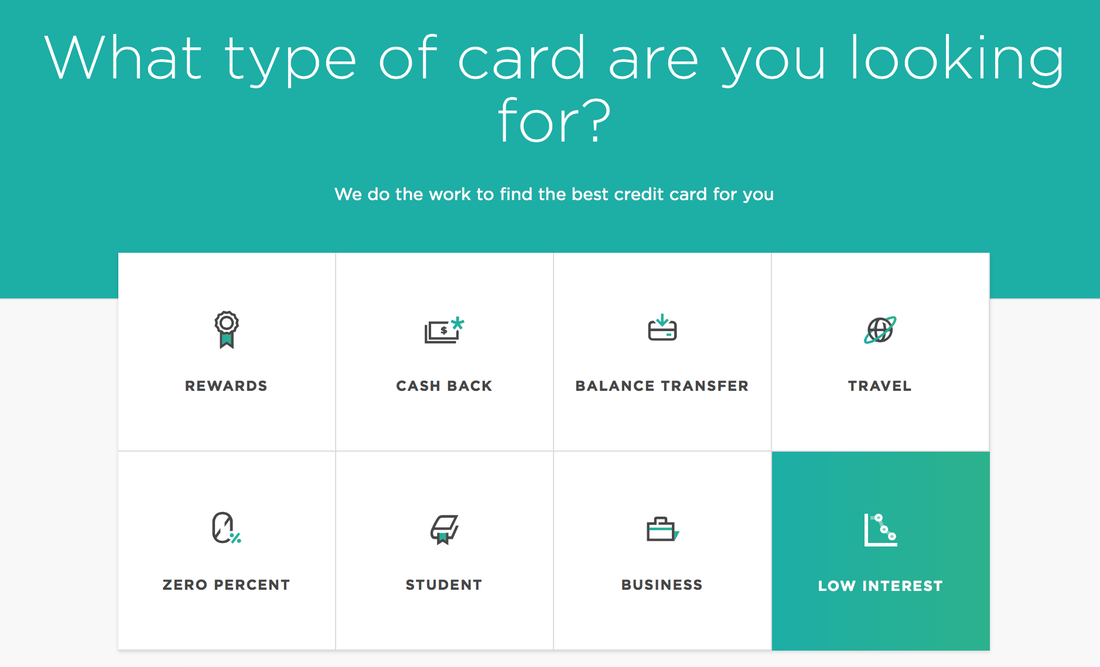I have always disliked money topics. Saving it, spending it, owing it, losing it, wasting it. When I was younger, all of my babysitting money would burn a hole right through my pocket. I got my first debit card when I was 15 and quickly learned about the pains of overdrawing it. I was trusted with my own money but was never given a real explanation of how things worked behind the scenes at banks, and I’m still not even sure about what goes on back there.
This is how I found myself to be 23 year-old who has never had a credit card in her life. I feel like I somehow missed this adult milestone along the way. I wasn’t one of the kids who got sent away to college with a credit card “just for emergencies.” I had no desire for one either, I was lucky that my parents were able to send me money instantly through our online bank if I ever found myself needing it. The money I had in my account was all I was ever able to spend.
Throughout college, I viewed credit cards as a slippery slope that caused more harm than good. I never wanted to get myself into massive credit debt, or ruin my chances of getting low interest rates when I needed to buy a car or a house. I had a healthy fear of credit cards that I think is overlooked by a lot of people in my generation. But as it turns out, now that it’s time for me to apply for one, I have no idea where to begin. For some reason it all seems like a bunch of smoke in mirrors. I don’t understand money any more than I understand how WiFi or nuclear energy works. So why would you take my advice when it comes to choosing your first credit card?
Well, when I realize that I’m clueless about a situation, my curiosity takes over and I determinedly research the topic until I feel confident about it. The truth is that credit cards, the double-edged sword that they are, do have a lot of benefits to them. For one, they’re great for buying things in advance that you know you’ll be able to afford later. Things like concert tickets that sell out quickly, or the flat tire you have to replace that can’t wait until next week’s payday.
I recently started a new job, and for the first time in my life I have this amazing thing called a salary. This means as long as I contribute my skills to the needs of my employer, I am rewarded with money every two weeks that helps make life easier. Now that I have the stability of an income, I feel confident in going out and applying for a credit card. If you have no money, credit cards are your worst and most tempting nightmare. The whole point of building your credit is to pay back what you borrow. Before you even start the process of deciding what credit card is right for you, you have to be sure that you have a steady source of income. Unsure of where that process starts? Well I kinda winged this, but here's the route I went.
STEP 1Make sure you're ready. Are you? Are you really sure? Most of you reading this might not have a clean slate like I (somehow) do when it comes to credit cards. And, as I’ve stated above, I’m no expert in this. All I know is listen to your gut feeling. If there’s something in the back of your mind saying ‘maybe I shouldn’t do this, I don’t know if I’ll be getting in over my head,’ then make a note of that and sleep on it a little bit before making a big decision. It took me five years to be able to say that I was ready for one. Something as important as your personal finances deserves patience and care, not rash decisions. | STEP 2Understand what credit cards do. This might seem like a silly step, but your preconceived notion of what a credit card is may overlook important details. In essence, each transaction that occurs on your credit card creates a mini-loan between you and the bank that you have pre-agreed to pay back. The trick is that while you are borrowing this money, the bank is essentially taxing it, or charging interest. The longer you borrow the money without paying it back, the more money you owe to the bank. Interest is the bank’s incentive for lending you money. You spend their money, they spend your money, and the world keeps on turning. |
STEP 3Learn the lingo. Before you walk into a bank or start an online form to apply for a credit card, it is helpful to know the terms being used. This isn’t like blindly agreeing to the new iTunes contract (who has time for big words like ‘Terms and Conditions’ anyway?). Finance and banking is unlike any other structure in our lives. If you plan to sign your name to anything this major, make sure you read the contract carefully to avoid any surprises or unintended consequences. This website has already done my work for me, so I encourage you to browse through this glossary of credit card terms until you know exactly what a finance charge, variable interest rate, and annual percentage rate are. | STEP 4Prioritize and personalize. There are plenty of features that come with credit cards, and some banks specialize more in student or business credit cards while others offer premium benefits like travel perks or discounts for select industries. I came across a fantastic site called NerdWallet that gives you a side-by-side comparison of different credit cards based on your search choices. Even if you don’t really know what you’re looking for before you start searching, NerdWallet’s interface has helpful pop-ups that will give you more information if you’re confused. What’s even more helpful is the reviews of each credit card left by people who have already owned the card, which can help reassure your decision-making. |
STEP 5Weigh your options. What makes the most sense for you? I bank with Chase, and I love their customer service. I haven’t had a bad experience with the bank after four years, and having a credit card under the same banking branch would simplify my financial needs. Maybe you want to stay within your bank too, and they offer a card that works for you. Maybe you want to use this opportunity to move away from a bank you hate. NerdWallet has profiles of each card it compares that will give you a straightforward list of pros and cons for each card that will help you make a final decision that you can be comfortable with. | STEP 6Make a decision. After comparing different credit cards, weighing in the factors that were important to me, and checking reviews to make sure my trust wasn’t misplaced, I was able to make an educated, well-informed decision. The Chase Freedom card. There was just something about it that felt right to me. When I pictured myself using this card, the nervous feelings I had surrounding credit cards were no longer there. I could feel comfortable using this card, which is a nice peace of mind when it comes to your finances. Not to mention the extra perks of getting cash back on fun things all year long. |
STEP 7Apply for it. You thought we were done already? Nope, we’ve merely finished the research portion of this little step-by-step process. The deal isn’t done until you’ve been approved. I decided to apply for my card in person at a Chase branch. I felt comfortable, I could ask questions if I needed to, and I wasn’t afraid of accidentally clicking something that would sell my soul to my bank without me realizing it. There are online methods for applying to credit cards, but call me old school, the internet is sketchy sometimes. If you can, go in and speak to a person about any of your concerns, anxieties, or confusion. It’s their job to help you through the application process, don’t feel like you have to tackle it alone. Turns out when I went to Chase, my representative just typed my information into their online application form for me. But I still got a free lollipop out of it, so it was worth the trip. | STEP 8Wait it out. Once you’ve put in your application, you get to wait. Usually it’ll take about a week before you’ll hear a decision back. It was such an easy process that I took this time to kick up my heels, relax, and imagine how accomplished I would feel the first time I slid my new card into my wallet. A letter from Chase came not long after. I felt the envelope and knew the card wasn’t in there. What I found instead was a rejection letter stating that I had been denied due to delinquency. Was that a turn you didn’t expect? Yeah, me too. I was sure I was approved. Delinquency? What does that even mean? Don’t tell me my underage drinking charge from high school is preventing me from getting a credit card at 23. Turns out there is a financial type of delinquency too, and it means you owed something and never paid it back. Now what? |
STEP 9Back to the drawing board. I turned to CreditKarma.com for some answers. How low could my credit score be for this to happen? Turns out it’s like 560, which warrants me landing in the “very poor” category. Did I tell you how much I dislike money topics? It turns out I had an unpaid medical bill from years ago. Oh and by the way, don’t forget about those student loans no one has bugged you to pay back yet. Picture me, three hours of internet finance research accompanied by exponentially increasing anxiety later, and this is how I untangled the cause of my garbage credit score and denied application. How embarrassing. | STEP 10Plan B. Okay, so there isn’t a credit card out there that would accept my application (I haven’t tried Target, yet but that’s a little too tempting). Instead, I found an interesting card from Capital One, another bank I use. The Secured Platinum MasterCard sounds pretty legit, but all it is is a pre-paid credit card, so you can only spend what money you’ve put on it. But, if you make consistent ‘payments’ it will positively affect your credit score and hopefully move me up in to a more favorable credit bracket. I’m lucky that I found this out when I was in my financial youth, because I’m going to have a hell of a time trying to pull it into the green-zone. Here’s hoping. |
So, as adulthood progresses, I’m finding more surprises than fulfilled expectations. I need to stop being so sure that I’m doing everything right. Theres a healthy balance between confidence and uncertainty, and willingness to accept your shortcomings. Good thing for me that I’m insatiably curious, and I plan on taking that to heart by coaching myself up until I’m on top of my adult game.
Do you have any financial tips or stories from when you were first starting to figure it all out? Or maybe instead you have a question and think I’m a good person to consult. Either way, shoot a comment below and at the least, you’ll have some comfort in knowing you’re not alone in your journey into adult finances. I hope this post got you moving in the right direction! When in doubt, fact check everything and ask for help when you need it. Now, I’m off to try and pull myself up the credit ladder. One fragile rung at a time.







 RSS Feed
RSS Feed
